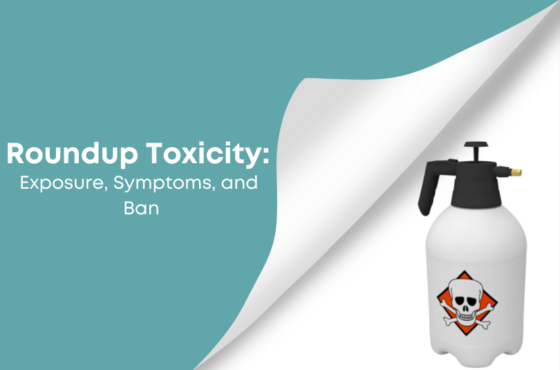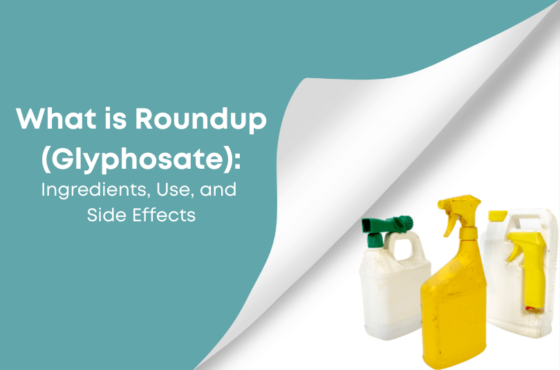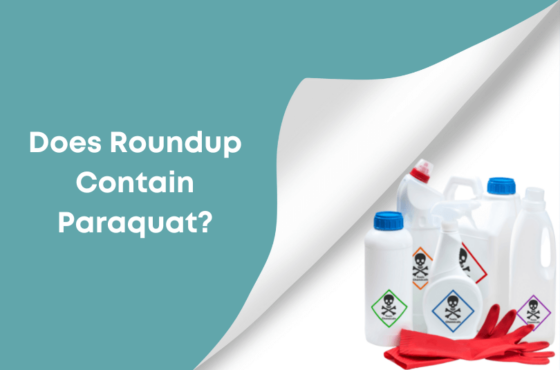As the debate around Roundup becomes every day more heated, the weeds inside your lawn won’t stop growing any time soon. But for all of us who do not want to risk being diagnosed with cancer by using this allegedly dangerous herbicide, knowing more about the alternatives is quite important.
Is it possible to exterminate these annoying plants naturally by using a non-toxic weed killer that is safe for our pets and children? You don’t need to be part of a “green movement” to take care of your green. You just need to choose the right organic products, and you’re good to go.
Why is it important to use a non-toxic weed killer?
So, you read all about Roundup and Paraquat already. You know everything you need about its toxicity, the purported duplicity of Monsanto who tries to conceal its dangers, and the mass tort that spurred around it.
But if you’re careful while using it, such as by using gloves, eye protection, maybe even a gas mask (sort of), there’s nothing you should fear right? Well, actually, there’s always a risk associated with the use of advanced chemical herbicides such as glyphosate, no matter how careful you may be.
The main problem is that you’re not the only one who is exposed to the toxic effects of this substance. Setting the lawn care routine aside, the herbicide will stay on the grass surface for a lot more time.
“Smaller” creatures such as your children and pets are much more exposed to the dangerous effects of a chemical pesticide since their breathing apparatus is so much closer to the grass.
Their comparatively minuscule weight also means that they’re exposed to a much more concentrated dosage that can make dangerous something that is otherwise harmless.
That’s not counting the risk that a kid, cat or dog may even ingest some grass or soil, may just by swallowing a beetle. So, yes, you definitely want to know what weed killer is safe for dogs and kids as soon as possible.
But that’s not all. What about the negative effects that these harsh herbicides may have on the environment? And how much is it important to find a weed killer that is safe for your other plants and flower?
You know the answer to these questions already, I guess. Now that we put the issue into perspective let’s have a look at the solutions now.
Organic Plant-safe Weed Killers
The demand for natural weed killers is constantly increasing, so the market is literally flooded with organic alternatives to Roundup that are almost as much potent, yet far less hazardous to people and the environment.
For example, there are many non-selective organic herbicides that can kill practically any plant that contain natural substances such as citric acid (found in lemons), acetic acid (from vinegar) or clove oil.
Obviously, you can’t simply squeeze a lemon over a plant you want to kill – these products are all concentrates as you need a certain concentration to be effective. Sadly, there are no alternatives to selective weed killers that are safe for flowers right now.
But, don’t worry, science is working on it. Corn gluten meal is currently being investigated as a potential solution for springtime crabgrass prevention if properly timed. It does not prevent seeds from germinating, but it stops them from forming roots. However, right now it still is an inefficient solution since it requires very precise timing and large quantities.
Homemade Weed Killers
Most homebrew solutions are loosely based on the same principles of the above-mentioned organic products. However, they also mix in some chemistry to enhance the effects of these substances, and a lot of these recipes are often powerful enough to pack a punch.
A classic homemade weed killer is a combination of vinegar (one gallon) with one tablespoon of soap and a cup of salt. Needless to say, this somewhat potent weed killer is pretty much non-selective since it acts by desiccating plant tissues with salt, disrupting its cells with vinegar, and leaving it there to stay for as long as possible with soap.
Some plants can resist this attack, especially those with waxy coatings or hair, so you may try using stronger vinegar concentrations (such as 20% instead of the classic 5% found in stores).
The bottom line
Truth to be said, chemical herbicides are still more effective than “green” weed killers – and that’s why they’re also more inherently dangerous after all. However, the best approach for a thriving lawn is based on prevention rather than on treatment.
Killing weeds is always much less effective that caring about your soil’s health throughout the year. Opportunists weeds are always a signal of an underlying problem such as a deficiency in the soil.
Take care of your soil, and biology will take care of these annoying pests much more effectively than any weed killer you may shop around.



